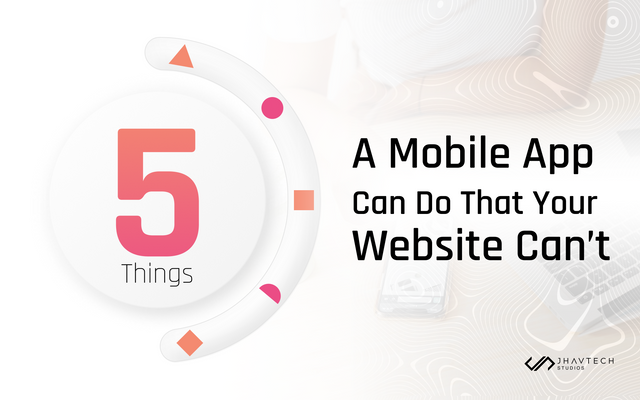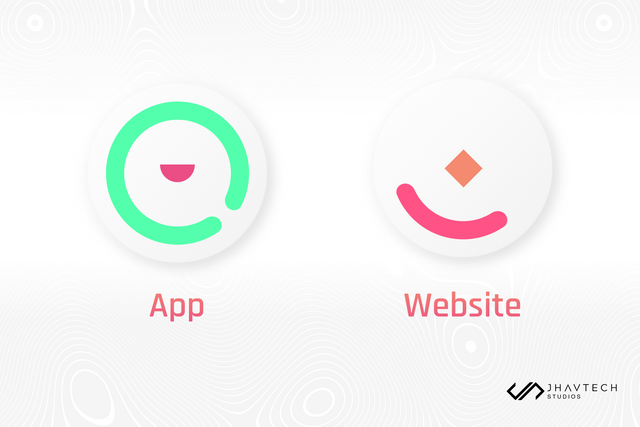
The mobile era is upon us and today, the number of mobile users far exceeds the number of desktop users. This has led modern day businesses to realize the need to build digital assets and attract customers by leveraging various mobile channels. However, that won’t suffice. You must also optimize your website and mobile app to enhance user experience and increase conversion rates to take full advantage of such channels.
Some businesses use both websites and mobile apps while others only choose one of the two. The decision on mobile app vs. website depends largely on their cost, features, functionality, and target audience.
Some people believe they don't need a mobile app, and that they simply need a website that will look good on mobile devices. Others argue that mobile apps have distinct advantages that a website cannot offer. Who's right?
It appears to be the latter because studies reveal that most users prefer mobile apps over websites, and this provides a solid reason to build a mobile app to reach out to existing and potential customers. Below are 5 advantages of mobile app vs website.
Mobile Apps Offer Ease and Better Personalization
Mobile apps give you the freedom to personalize the user experience based on their usage patterns, interests, preferences, and more. With apps, it is easier to offer users a more personalized interface. Moreover, a mobile application can allow users to customize its appearance according to their preferences.
Mobile apps let users navigate in a manner that feels intuitive to them. You can design an app to fit on a small screen, delivering an optimal viewing experience on mobile devices. Websites usually need to adapt to all screen sizes and resolutions, and this means brands may have to sacrifice image quality to make sure that users can access their website on different devices.
Apps can also monitor customer engagement then utilize the data to offer custom updates and recommendations to the users. Mobile apps can even identify the users’ location in real-time and provide area-specific content.
Note, however, that enhancing user experience is not the sole purpose of personalization. It is also useful in helping improve the conversion rate of apps. When you pamper users with personalized content, it is more likely for them to convert because you offered them a human touch, which is in stark contrast to generic content that seems automated or robotic.
Make Use of Mobile Device Features
Mobile apps offer users the advantage of using device-specific features like a camera, compass, GPS, contact list, phone calls, touchscreen, etc. These features, when used with an app, makes the user experience fun and interactive. They can also minimize the effort users need to make otherwise. For example, users filling up a form on a banking app may need to submit their photos to complete the process. The mobile app can allow them to use their mobile camera to take photos and submit them.
Screenshots are likewise commonly used because they are easy to take and save to share with others or reference later when reading articles, watching videos, or capturing other on-screen events. Moreover, the zoom in and zoom out functions of touchscreen displays provide for easy focus and cropping. Such features reduce the time required to perform common tasks, enhance convenience and boost conversions.
While mobile websites can also use certain mobile features such as the camera and GPS, there are privacy concerns and technological constraints in using multimedia features of a device, which is not a huge concern when using mobile apps.

Offline Use Across Multiple Devices
Offline usage is not easy to implement, but it could well be the most significant advantage of mobile apps over websites. Most mobile applications have the ability to function offline and be used on different kinds of mobile devices. On the other hand, websites need an Internet connection to work. Even if some apps require Internet connectivity to function, they can still provide basic content and functionality in offline mode.
This makes mobile apps a lot more versatile than websites. They are able to reach and cater to a wider audience, thereby increasing potential sales. Websites don’t operate properly when they run into problems with the users’ Internet connection. Mobile apps have the distinct advantage in terms of reliability because most of them can run offline.
Let’s take a banking app as an example again. It can offer features such as installment calculation, tax calculation, and saving transaction details locally. These features will work even without an Internet connection. Another good example is health and fitness apps. They can offer functionality like a diet plan, calorie chart, water intake alert, and workout regimes even when operating offline.
While cached browser data can provide static versions of a website, mobile apps minimize the disconnect between your business and its customers if connections are lost. In addition, automatic app updates help ensure data synchronization when connections are available.
Apps Can Work Faster Than Websites
A well-developed mobile application can perform actions quicker than a website. There’s no need for browser overhead of CSS, along with HTML and JavaScript codes. Mobile websites utilize JavaScript code to execute most of their functions, while mobile apps use frameworks that can run five times faster than a JavaScript code. Note that this transpires on the background and users get to perform actions quicker on the frontend, contributing to a more satisfying experience.
A mobile app only needs pure native UI elements when retrieving the data it requires in order to display what the user needs. Moreover, apps typically store data locally in mobile devices, in contrast to websites that usually use web servers. As such, data retrieval occurs rapidly in mobile apps.
You also need to take into account that mobile apps are downloaded and installed in your device. So, instead of having to load up all the images and functions, as users do with a mobile website, the app simply retrieves everything from files that are already in your device. With load times reduced, you have more time to enjoy the app in the manner it was intended.

Customized Push Notifications
The ability to send immediate and non-intrusive notifications to users is one of the major reasons why a lot of businesses want to have their own mobile app. There are two types of notifications – in-app and push notifications. The former is only received when users have opened an app while the latter can be received by users regardless of their activity on their mobile device.
Sending out push notifications is a great way to grab users’ attention and studies have shown that there are cases where push notifications achieved click-through rates of 40 % or higher. Recent data also revealed that roughly 60% of mobile users enable push notifications on their devices, and in a survey on the utility of push messages, 57% of respondents stated that they find them useful.
However, notification campaigns must be meticulously and thoughtfully prepared. Users get annoyed if they are constantly pinged by notifications that don't provide urgent or relevant information.
Users can actually customize their apps by configuring push notifications to allow their preferred brands and businesses to remind them about product or service updates. Customized notifications appear on their screen as soon as their device receives them, so businesses don’t have to deal with the hassle of sending out emails or text messages to quickly and efficiently disseminate new information.
Final Thoughts
The debate on mobile app vs. website will likely continue but the facts and statistics will speak for themselves. Mobile apps are a gold mine for businesses and present a gateway to myriad of benefits like better user engagement, increased ROI and improved customer satisfaction. Of course, you can consider developing both a website and an app to boost users’ engagement with your brand.
But the success of whichever you choose depends largely on assessing your situation and making a smart decision based on your users’ needs and your budget. See to it that you do due diligence, conduct thorough market research and choose a development company that can help you build the best website or mobile app for you.